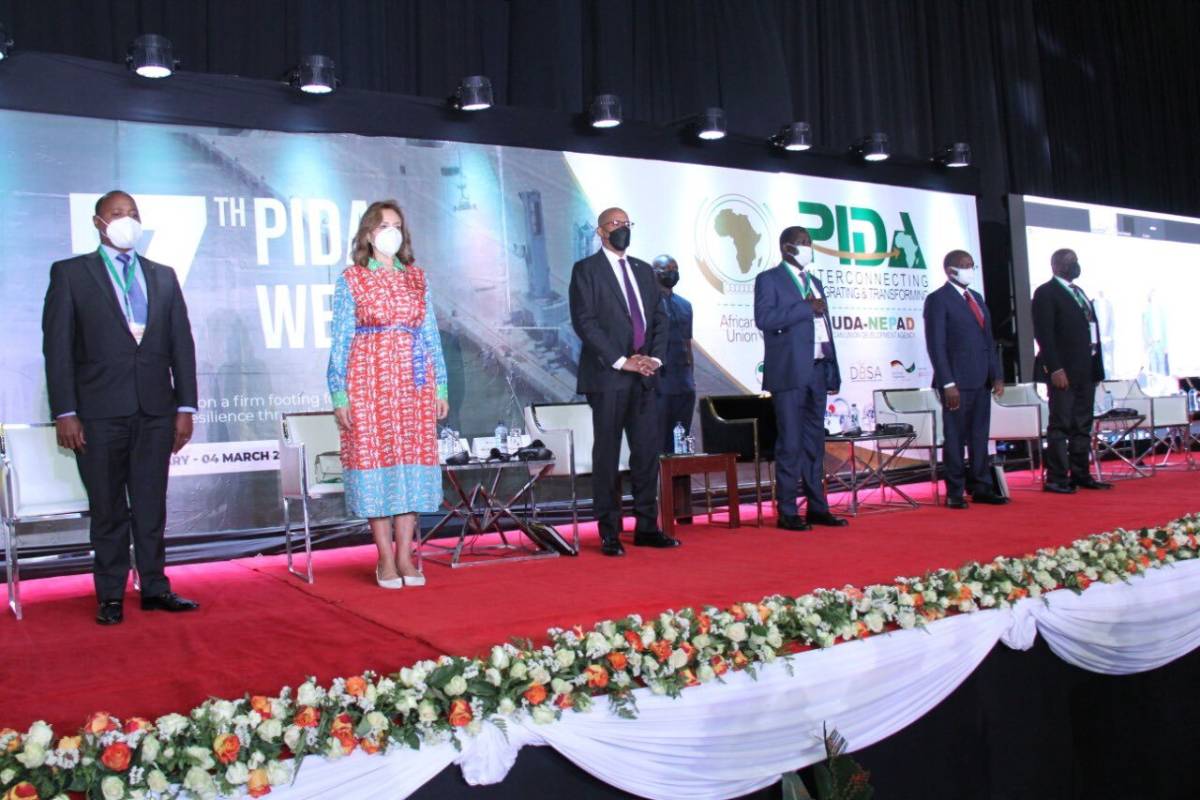The increase in African countries’ COVID-19-related expenditure could impact the annual gap in infrastructure investment in the short to medium term. And the pandemic has also had a negative impact on cross-border trade
The African Development Agency “Oda NEPAD” continued its sessions for the seventh edition of the African Program for Infrastructure Development at “PIDA” week at Kenyan capital, Nairobi, under the slogan “Africa on the road to recovery, growth and resilience through infrastructure.
African policymakers and experts are discussing the role of the infrastructure sector in injecting post-COVID-19 recovery, growth and resilience into Africa.

The 7th PIDA Week is focussing on how Africa can lead the way in the delivery of infrastructure in a post-COVID era as well as supporting the economic and social imperatives of the continent in the digital age.
The African Union stated in a statement that sessions focused on issues of digitization and the continental technological infrastructure to accelerate the recovery and the hoped for growth in Africa.
On her part, Dr. Amani Abou Zeid, African Union Commissioner for Infrastructure and Energy, called for promoting innovation and stimulating digitalization across all sectors for inclusive growth and development on the continent.

In the same context, participants addressed the challenges facing “digitization”, stating that nearly 300 million Africans live more than 50 kilometers from the fiber-optic link, which represents a significant obstacle to driving productivity, innovation and growth.
They noted that the digital skills gap is still large and prevents the uptake of new technologies and innovative business models, noting that regulations and policies are adapting very slowly to the digital economy
“The prolonged COVID-19 pandemic has had devastating multifaceted economic and social consequences that have disproportionately affected Africa on human development indicators, economic interdependence, growth and resilience patterns,” the AU said.
In a bid to contain the spread and the multifaceted impacts of the pandemic, African governments have prioritized their spending commitment mainly focusing on vaccinating their population and building resilience, eventually increasing their recurrent expenditure.
According to the AU, the increase in African countries’ COVID-19-related expenditure could impact the annual gap in infrastructure investment in the short to medium term. And the pandemic has also had a negative impact on cross-border trade.
African countries were forced to shut down borders and, in some cases, apply trade restrictions that have affected supply chains inbound and outbound within the regions and as a result recording trade deficit in volumes, exposing Africa’s overdependence on external supply chains.

“It is expected that once the pandemic is successfully contained, the focus will need to shift from crisis management to assisting to adequately invest in infrastructure for development, as well as preventing and mitigating the impact of future outbreaks,” the AU said.
ALSO READ: Africans prevented from leaving Ukraine
The PIDA Week, among other things, envisages bringing together international and regional experts from multiple stakeholders to deliberate on the issues around infrastructure delivery in Africa. The continental week will focus on how Africa can lead the way in the delivery of infrastructure in a post-COVID era, supporting the economic and social imperatives of the continent in the digital age.
The PIDA Week agenda includes post-COVID 19 infrastructure financing, delivery, and resilience; the critical role of infrastructure in the implementation of the agreement for establishing the African Continental Free Trade Area (AfCFTA) and in the post-COVID-19 recovery; and the transformation in demand for and consumption of transport, energy, ICT and social infrastructure.

